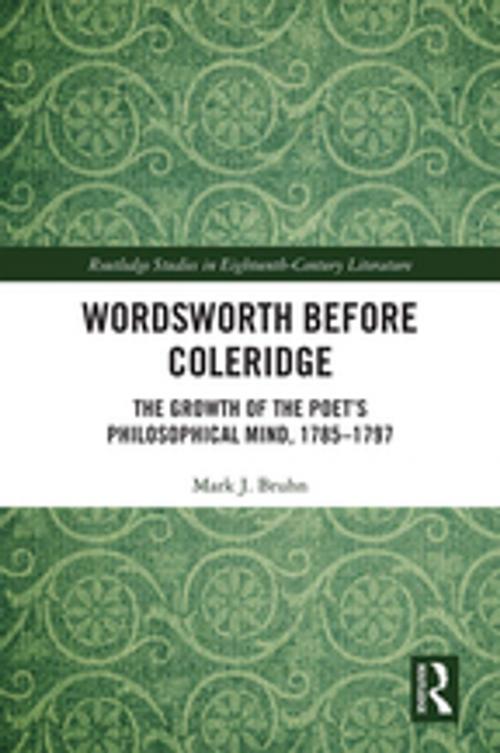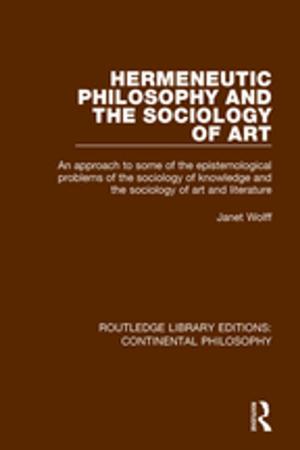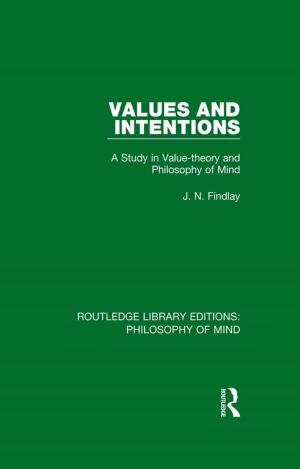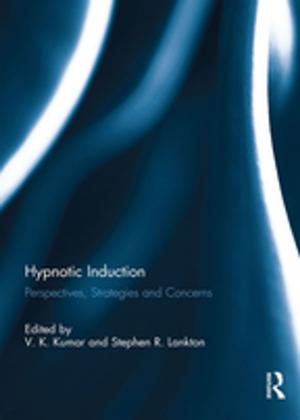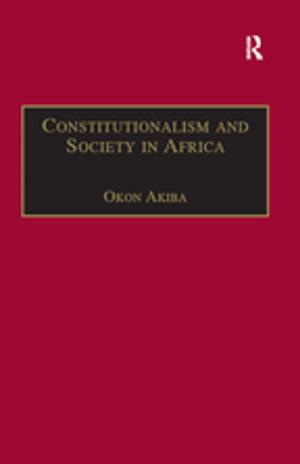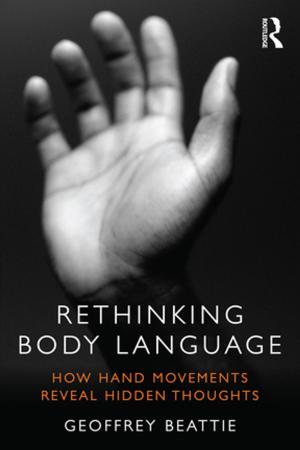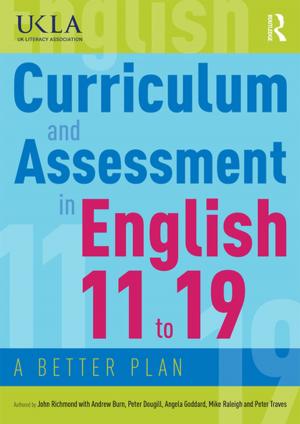Wordsworth Before Coleridge
The Growth of the Poet’s Philosophical Mind, 1785-1797
Fiction & Literature, Literary Theory & Criticism| Author: | Mark J. Bruhn | ISBN: | 9781351045414 |
| Publisher: | Taylor and Francis | Publication: | February 6, 2018 |
| Imprint: | Routledge | Language: | English |
| Author: | Mark J. Bruhn |
| ISBN: | 9781351045414 |
| Publisher: | Taylor and Francis |
| Publication: | February 6, 2018 |
| Imprint: | Routledge |
| Language: | English |
Drawing extensively upon archival resources and manuscript evidence, Wordsworth Before Coleridge rewrites the early history of Wordsworth’s intellectual development and thereby overturns a century-old consensus that derives his most important philosophical ideas from Coleridge. Beginning with Wordsworth’s mathematical and poetic studies at Hawkshead Grammar School and Cambridge University, both of which tutored the young poet in mind-matter dualism, the book charts the process by which Wordsworth came, not to reject this philosophical foundation, but to reevaluate the indispensable role of passion within it. Prompted by his reading in 1793 or early 1794 of Dugald Stewart’s Elements of the Philosophy of the Human Mind, Wordsworth rejected the exclusive rationality of William Godwin’s political philosophy and the anti-passionate morality of Alexander Pope’s philosophical poetics. Subsequent exposure, between 1795 and 1797, to Cambridge Platonism and English Kantianism supplied the key ideas of mind-nature fitness and multilevel psychological activity that, along with Stewart’s analysis of imaginative association, animate Wordsworth’s signature philosophy of "feeling intellect," from the initial drafts of The Pedlar and The Prelude in 1798 to the "Prospectus" to The Recluse and The Excursion, published together in 1814. By presenting for the first time a fully nuanced account of Wordsworth’s intellectual formation prior to the advent of Coleridge as his close companion and creative collaborator, Wordsworth Before Coleridge reveals at long last the true sources and abiding originality of the poet’s philosophical mind.
Drawing extensively upon archival resources and manuscript evidence, Wordsworth Before Coleridge rewrites the early history of Wordsworth’s intellectual development and thereby overturns a century-old consensus that derives his most important philosophical ideas from Coleridge. Beginning with Wordsworth’s mathematical and poetic studies at Hawkshead Grammar School and Cambridge University, both of which tutored the young poet in mind-matter dualism, the book charts the process by which Wordsworth came, not to reject this philosophical foundation, but to reevaluate the indispensable role of passion within it. Prompted by his reading in 1793 or early 1794 of Dugald Stewart’s Elements of the Philosophy of the Human Mind, Wordsworth rejected the exclusive rationality of William Godwin’s political philosophy and the anti-passionate morality of Alexander Pope’s philosophical poetics. Subsequent exposure, between 1795 and 1797, to Cambridge Platonism and English Kantianism supplied the key ideas of mind-nature fitness and multilevel psychological activity that, along with Stewart’s analysis of imaginative association, animate Wordsworth’s signature philosophy of "feeling intellect," from the initial drafts of The Pedlar and The Prelude in 1798 to the "Prospectus" to The Recluse and The Excursion, published together in 1814. By presenting for the first time a fully nuanced account of Wordsworth’s intellectual formation prior to the advent of Coleridge as his close companion and creative collaborator, Wordsworth Before Coleridge reveals at long last the true sources and abiding originality of the poet’s philosophical mind.
